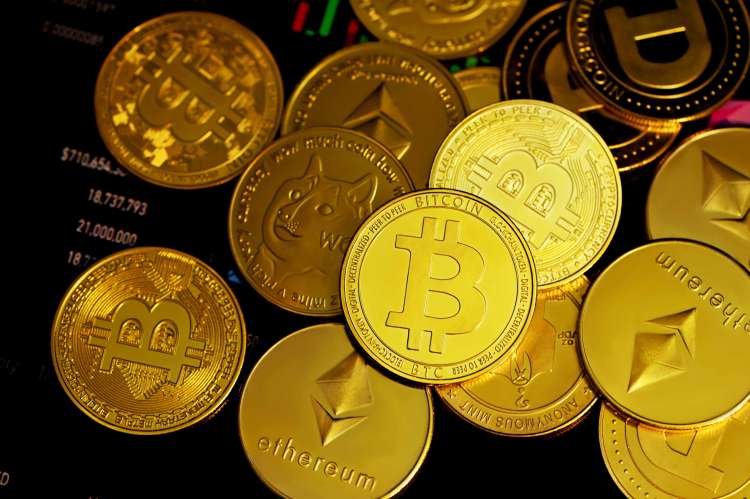
Cryptocurrency regulation in India: Despite the Union government imposing significant penalties on cryptocurrency trading, India’s adoption of digital assets is increasing, Kristalina Georgieva, Managing Director of the International Monetary Fund, said last week. Emerging markets such as India, Nigeria, and Vietnam are experiencing a surge in crypto asset adoption, presenting challenges to macro-financial stability. Georgieva, speaking at a digital money conference in Seoul, highlighted concerns about how this trend could impede the effectiveness of monetary policies, especially in adjusting interest rates.
A recent report by Chainalysis, a blockchain data analytics firm, places India at the forefront of global crypto adoption. This finding is based on various factors such as transaction volumes, purchasing power, and population demographics, to gauge grassroots crypto adoption.
READ | Indian banks can reimagine global financial services
India’s emergence as a leading crypto market is unexpected, given the country’s stringent regulatory and tax environment. The industry faces hurdles with a 30% tax on crypto asset transfers and a 1% tax deducted at source by crypto platforms. Despite scepticism from the government and the Reserve Bank of India (RBI), efforts have been made to develop a regulatory framework, accept digital assets, and provide clearer guidelines, including applying money laundering rules to crypto transactions.
India’s cryptocurrency conundrum
The Union government has called for international regulation of cryptocurrencies, citing concerns about their misuse for illicit activities. This stance has led to regulatory uncertainty in the domestic crypto industry, with these assets not yet recognised as legal tender.
The government faces a delicate problem with cryptocurrency regulation. While seeking to protect investors from this unregulated market, it cannot overlook the booming cryptocurrency sector and growing investor interest. As of December 17, 2023, the global crypto market cap stands at $1.58 trillion, having doubled in the past year, indicating significant interest in digital assets, according to CoinMarketCap, a cryptocurrency market research platform. Fortune Business Insights, another market research entity, projects the global cryptocurrency market to reach $1,902.5 million by 2028. Notably, Bitcoin is trading at its highest value since April 2022.
India’s crypto adoption boom is not solely driven by speculation. For millions of unbanked citizens, cryptocurrency wallets offer a door to financial services. Unlike traditional banks, digital wallets require minimal documentation and offer greater accessibility. This could be a game-changer, boosting financial inclusion and empowering marginalised communities. Furthermore, crypto unlocks faster and cheaper international remittances, benefiting migrant workers and their families. Blockchain technology even opens doors for microfinance and tailored financial products, reaching those often overlooked by traditional institutions. Therefore, while regulations are crucial, India should recognise crypto’s potential to bridge the financial gap and foster economic development.
Experts and institutions like the IMF and Financial Stability Board have suggested that India should swiftly implement regulatory measures rather than disincentivise investors. They argue that a total ban on crypto-related activities would be expensive and challenging to enforce.
In a shift from its earlier scepticism, the government has begun to adapt, keeping investor interests in mind. A notable example is the new tax schedule for reporting gains from Crypto/NFTs in the 2022-23 Income Tax Return. Startups like Taxnodes are emerging to simplify cryptocurrency tax computations and ITR filings, encouraging more investment in this market.
As the 2023 G20 host, India endorsed a joint declaration emphasising the rapid implementation of the Crypto-Asset Reporting Framework (CARF) and updates to the Common Reporting Standard, reflecting the fast-growing crypto market. These frameworks aim to standardise the reporting of crypto transactions and facilitate the automatic exchange of taxpayer information between jurisdictions.
This means that Indian transactions on foreign-based crypto exchanges will be subject to an automatic information exchange protocol under CARF, making it difficult to conceal such transactions. With CRS, governments are working to ensure full disclosure of foreign bank accounts and asset holdings to tax authorities.
The conversation around crypto in India often gets restricted to digital currencies. However, the underlying blockchain technology holds immense potential beyond just Bitcoin and Ethereum. Imagine transparent and efficient supply chains, from tracking agricultural produce to verifying the authenticity of medicines. Blockchain can revolutionise how industries operate, from agriculture to healthcare. Beyond private enterprises, imagine secure and tamper-proof record-keeping in government services like land registries and voting systems. This can enhance trust, combat fraud, and streamline administrative processes. By embracing blockchain’s diverse applications, India can unlock a wave of innovation and societal progress.
Cryptocurrency regulation in future
Acknowledging the significant growth of the cryptocurrency market, the Indian government needs to learn from global practices to refine its policies. For instance, several countries have applied the Prevention of Money Laundering Act (PMLA) to cryptocurrencies, extending traditional financial regulations to digital assets.
Hong Kong has introduced trading rules and licensing guidelines for crypto exchanges, while the United Arab Emirates’ Securities and Commodities Authority is processing applications for cryptocurrency services. The European Union has also been proactive, passing the Markets in Crypto Assets (MiCA) legislation to regulate blockchain technology.
IMF MD Georgieva underscores that policymakers face a choice: they can either actively shape the evolution of digital currency or risk being sidelined as the development of digital currencies progresses regardless. The emphasis, she suggests, should be on coordinating global policies to prevent regulatory arbitrage, given the ease with which crypto asset providers can relocate.
